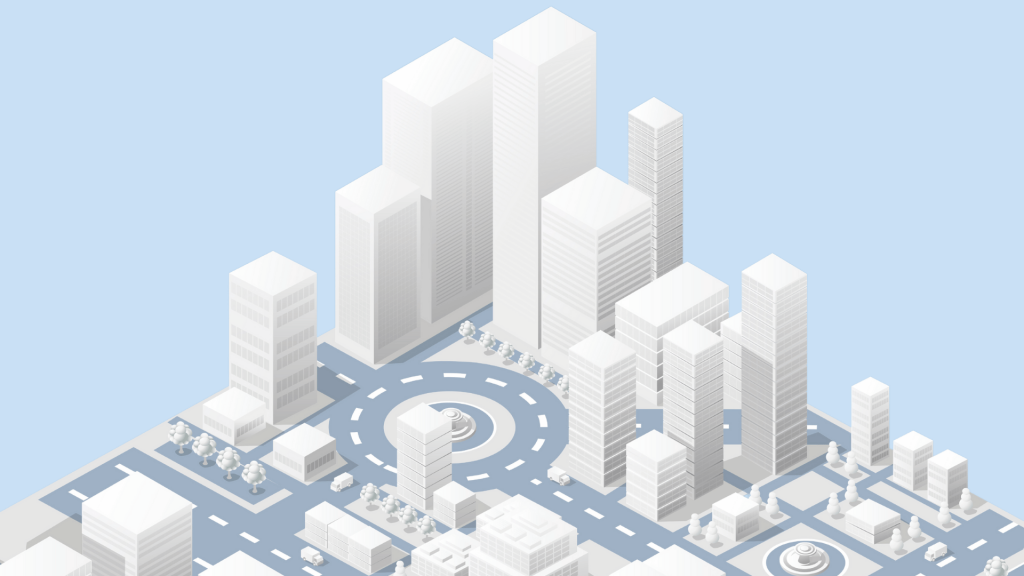
Cities are hard and complex systems. With their defined policies, grids and routes, they offer limited space for experimentation, with a low threshold for any type of interference to their regular flow. To test and prototype[1] in the urban, besides dealing with regulatory procedures, require clear indications of the positive impact those tests might bring. Thus, any change in routine flows is disruptive and not necessarily welcomed by all.
Some of these difficulties have become explicit during the processes carried out by various cities in four EU funded neighbourhood projects, Cities-4-People, Sunrise, MUV and Metamorphosis[2]. These projects have brought together citizens and other key city stakeholders to identify and co-create mobility solutions and approaches to tackling local problems. Each project has had a distinct goal, but all are part of the CIVITAS initiative focusing on ‘sustainable neighbourhood mobility planning’ and have been running since 2017, with three of them to end in 2020 and another in 2021. In the case of the Cities-4-People project, running in the cities of Hamburg, Istanbul, Oxford, Trikala and Budapest, cities, citizens and transport authorities have worked closely together to co-create and implement solutions addressing congestion, bike parking, safe and new routes to reach public transportation, and more[3].
Primarily, one of the biggest difficulties in deploying urban prototypes deals with permissions, space sharing, closing parts of or an entire street, or pavement, changing traffic routes, etc.
Even when implementing aspects citizens see as valuable and beneficial, such as bike racks, paths, during construction, these processes tend to be perceived as a nuisance. Another aspect stems from the fact that, unless it is a whole new city or neighbourhood been planned, the city, as a canvas, is never blank. Therefore, cities are constantly bound to develop solutions, which are imposed over an existing and fixed grid with very little wiggle room. All true, until March 2020.
The pandemic, through lockdowns and other movement restrictions, has changed the flow of cities almost overnight. For the first time, since the widespread city development focusing on automobiles, cities have had a chance to look at their now empty public spaces and rethink their use and purposes. These changes have forced the neighbourhood projects into a sudden halt, as people’s engagement with urban spaces has been very limited. However, while physical workspaces, shops and many businesses closed their doors, with citizens mostly at home, cities have encountered an unprecedented opportunity to rethink their streets.
In two related mobility examples, Vilnius, Lithuanian capital, the city Mayor has opened up eighteen of the city’s public spaces, free of charge, to bars and restaurants, so they can run while keeping the required social distancing[4].
In Milan[5], over the summer, the city will engage in a large-scale urban prototype, deploying 35km of temporary biking lanes and enlarged pavement areas.
While the city slowly opens up, with most employees still working from home and not commuting as much, citizens, when going out, should have enough space to keep a safe distance, while also experimenting in environmental friendly modes, such as walking and biking.
When some of the neighbourhood projects, such as Cities-4-People, resume in a few months, their cities and citizens might have changed. However, instead of considering the data that has been collected in the projects prior to the lockdown as ‘outdated’ or no longer valid, these projects can consider repurposing this data, using it as a robust baseline to be compared with post lockdown. From a mobility perspective, this ‘new normal’ might prove itself a valuable mobility asset. As people return to their streets, they can experience these known spaces in new formats encountering novel mobility patterns, where people and businesses can repopulate streets differently, reconfiguring city flows.
Furthermore, some of these temporary changes might prove to be popular and become permanent, promoting not only better mobility, but also lower pollution and improved air quality[6], indirectly helping cities leapfrog into achieving some of their sustainable development goals (SDGs). The opportunity to reset busy urban centres is rare; however, as it has occurred and continues to run with the pandemic, more cities and citizens have the unique chance to engage and exploit their cities’ canvas in new ways to seize their days.
References
- [1] Implementing a temporary solution.
- [2] https://civitas.eu/projects/research
- [3] https://cities4people.eu/
- [4] https://www.theguardian.com/world/2020/apr/28/lithuanian-capital-to-be-turned-into-vast-open-air-cafe-vilnius
- [5] In Milan, the lockdown brought a city to an almost complete stand still, decreasing an endemic congestion problem by 30-75%, thus improving air quality. https://www.theguardian.com/world/2020/apr/21/milan-seeks-to-prevent-post-crisis-return-of-traffic-pollution
- [6] https://www.mckinsey.com/industries/automotive-and-assembly/our-insights/the-impact-of-covid-19-on-future-mobility-solutions?cid=soc-app

Isabel Fróes is a postdoc at MSC Department at Copenhagen Business School working in two EU projects (Cities-4-People and iPRODUCE) dealing with distinct aspects of urban services and sustainability. Her latest publications deal with urban planning and co-creation based on results from the Cities-4-People project. Isabel also has wide industry experience and has worked both as a user researcher and service design consultant for various companies in Denmark and internationally. For more detail please see her Linkedin profile.
